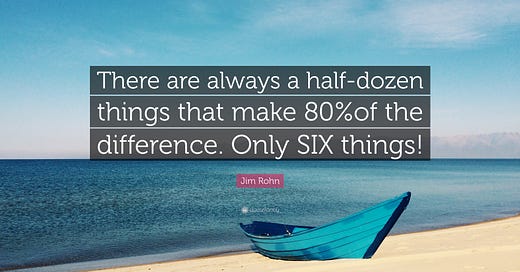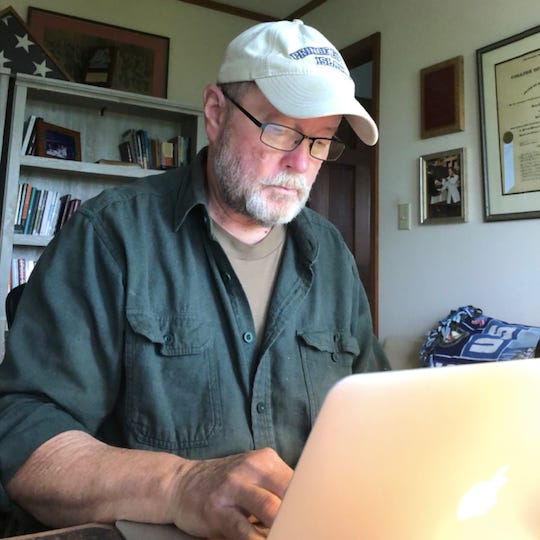The Process of Personal Transformation: The Miracle of Informal Education
Where Thiings Really Happen
Informal Education – What is it?
Informal education includes anything that is not formal classroom education - Reading, Self-study, On-the-Job Training (OJT), and time-based repetition such as skills and knowledge acquired from daily job-related functions, etc.
The introduction of the Internet into daily life has greatly increased access to knowledge, thus making informal education (again, much of it free) a viable alternative for those who, due to various life circumstances, cannot or do not want to engage in more formal paths of education.
For example, a friend of ours became an expert in web design all on his own, almost without cost simply because he has an Interest. He tapped into the vast repository of information on the Internet that is waiting for anyone who has a desire and will take the initiative to learn. His only investment was time. This pursuit has now opened up an additional opportunity for him to begin a web hosting business as well as photography.
He told me of a friend of his who graduated with a four-year degree, spending multiple thousands of dollars to do the same thing. And, he doesn’t even enjoy it that much. It seems his friend followed the “Pied-Piper” philosophy of pursuing a trend simply because it promised to “pay well” without regard to his Potential, Personality, or Passion. That is what the vast majority are programmed to do - Go for the money regardless of passion.
All this is great news for someone who is well down the road of life, yet has the desire or calling to change their direction. It has never been easier than it is today.
A big part of education is a sort of cognitive knowledge about yourself - who you are - how you perceive, think, and learn. You must start here. It is the key to everything else.
Do you really know who you are? Have you ever taken the time to understand your unique personality traits or your deepest desires? What are your main skill sets? What is it that you love doing so much that it doesn't even seem like work? What would you pursue if there were no obstacles in the way?
There are three areas on which to focus:
• Personality (genetic character traits, disposition, personal preferences, etc.)
• Potential (skills, gifts, natural abilities)
• Passion (desires, dreams, goals, values)
Life Skills - Learning How to Use What We Learn
Also incorporated into both formal and informal education is Life Skills Learning. It is important not only to learn but also to learn how to use what we learn.
I believe this is the point where the vast majority of formal and personal education endeavors fail. It is why so many adults are living in the Trap of “comfortable misery”.
We learn math, but little financial management.
We learn science, but not how to apply it to our daily existence.
We learn social studies, but not social skills.
We may even be taught about different vocational paths, yet it is almost always in the context of employment (without regard to personality, potential, or passion) not calling.
The Basics
There is a staggering amount of information available today. Only a few basic things, however, are essential for Personal Transformation to take place. Everything else can be considered value-added.
Here are a few things that will help us:
First, and most importantly, we need to know ourselves: our passion, potential, and personality, and how they should be used synergistically to guide us in determining our calling and personal transformation.
Take some time with this. Many of us have been on auto-pilot for so long that the essence of who we are has been long buried. So we need to put on our archeologist hats and carefully dig deep to uncover our core being again.
Second, get a firm grasp on where you are financially. This includes understanding why you are where you are financially and what lifestyle and habit changes may be needed to change the picture.
Financial education also includes a thorough understanding of the difference between active income vs. passive income. This is a key point.
Active income can be defined as trading time or service for money (work once, get paid once). An example of active income is an hourly wage or salary or perhaps a sale of a product or service that has to be periodically replaced.
Passive income is residual income for the same work (work once, get paid multiple times). Some examples of passive or residual income would be commissions on an ongoing service (such as insurance), book royalties, investment income, rental property income, etc.
Third, educate yourself about opportunities that would be a good fit for who you are. Ideally, you want to shoot for opportunities that produce passive income. Ideally, you should be involved in activities that produce a mixture of active and passive income.
A Burning Desire or Comfortable Misery
For those of us who have quite a bit of water under our bridge, there is only one realistic way to correct this educational deficiency – We must have a burning desire to change. That “want to” must be so strong that it carries you through the rough spots, over the hurdles, and becomes like a bright light to a moth – you are compelled toward it almost by instinct.
The reality is that most of us achieve a level of stability in which we are just comfortable enough to stay where we are. “It ain't that bad,” we tell ourselves. We have our TVs, our computer games, Facebook, our weekend toys, and sports. It's bearable, so we lull ourselves into believing this is what life is and even if there were more, it is too late to change.
I am reminded of the story that Zig Ziglar tells explaining this phenomenon:
Two old-timers were sitting on the porch passing the time on a hot summer day. One of them owned an old hound dog named Blue who
was laying nearby whining loudly and moving around a little but never really changing his spot!
The visitor asked, “What’s wrong with old Blue?”
The owner replied, “He’s a layin’ on a nail head that's stickin' up out of the board.”
“Well, why don’t he move?” asked the visitor.
“I reckon it don’t hurt bad enough yet!” answered the owner.
This is a humorous story, yet it portrays one of life’s odd truths: Most of us are just like old Blue – “It don't hurt bad enough yet.”
In other words, where we are in life is uncomfortable, but it's not bad enough to do something about it. We desire our comfortable misery more than going through the process of changing. We will cover this in more detail in the chapter on motivation.
For now, contemplate these questions:
What about YOU? What is YOUR excuse?
• Do you keep telling yourself that it is too late to change?
• Have you settled for a level of comfortable misery in life because the process of personal transformation seems too difficult?
• Is there a passion you once had that is now buried in the graveyard of forgotten dreams?
• Do you know you have skills and abilities that have atrophied because of neglect?
There is hope. It’s not too late to make that transition. It’s never too late, except in your mind. So, the question that needs to be answered now is, “What is it that's holding YOU back?”.
There is no “one way” to be educated. In fact, we are constantly learning and processing information. However, as in the example of the boat, the most productive way is to make a conscious effort to use the tools available to us.
If you have a firm understanding of these things, you can take action to direct your course in life with much more accuracy and enjoyment, no matter how old you are or what your current circumstances may be.
Next week we’ll look at specific actions we can take to move the goalposts.
Until then, my friends - Happy Sailing …
Thank you for subscribing to Life UnCorked where the focus is on successfully navigating the issues of life from a Christian point of view.
While you’re here, check out my creative writing ‘Stack: The Talking Pen, where you’ll find fiction & non-fiction stories, poetry, art, and personal musings that illustrate the struggles, tragedies, and triumphs of life.







Real wisdom in that piece, Cork!
The Pareto Principle???